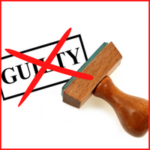Employers are required to investigate workplace complaints. Investigations must be undertaken promptly after receiving a formal complaint and be done in accordance with relevant internal policies and procedures.
It is important when conducting a workplace investigation that the investigation is thorough; that the investigator is impartial, and that confidentiality is maintained by all involved.
To ensure that an investigation is undertaken properly, it is generally recommended that serious workplace complaints be investigated by an independent third-party investigator.
Common mistakes we see with investigations
- Not using an appropriately qualified investigator to conduct an investigation.
- Failing to put all allegations to the accused employee and giving them sufficient time to consider the allegations and respond to them before a decision is made.
- Not conducting a thorough investigation.
- Not taking the allegations seriously and therefore not investigating the grievance.
- Not ensuring procedural fairness is afforded to all involved.
Key risks of getting it wrong
Not investigating a complaint or allegations of serious misconduct properly can lead to complainants and the alleged perpetrators being dissatisfied with the process and or the outcome and this can give rise to a myriad of claims.
The relevant Tribunals are very clear in their decisions that workplace investigations have to be thorough and not rushed or undertaken purely as a token gesture to be able to say the complaint was investigated. The process of the investigation will be examined in court proceedings.
How can we help you?
Aitken Legal’s Employment Lawyers are experienced in conducting thorough and impartial workplace investigations. Our team regularly conducts investigations into complaints involving workplace bullying, harassment, sexual harassment, discrimination, dishonesty, fraud, theft, and other forms of serious misconduct.
As part of an investigation, our lawyers will interview the complainant, alleged offender and all relevant witnesses, and prepare a detailed report which summarises the investigation and sets out our findings.
We can also provide advice and recommendations on disciplinary action, including guidance on how to conduct disciplinary meetings with relevant employees.


